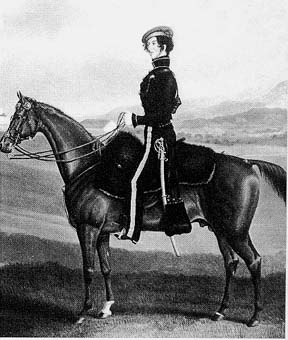I have been writing about dressage almost every day for the past five or six years. I started with quotes from the old masters. Ninety nine percent of the time they came from my translations from the original French.
I chose expert after expert in a sea of old masters to make points about the nature of dressage while avoiding stating my own views. I hid behind the famous, it could be said.
At some point, a few years ago, I started stating my own views. It was not a shift in my perspective but instead, I decided that using either the old masters or my personal perspective did not matter. I could be my own authority. I did not need the foils of the dead or near dead.
In person, through the course of my teaching, I rarely quoted because the horse was always present to validate my words but in cyberspace, the loudest voice of the collective bully would rule the day, but when I invoked the sacred names of the masters, especially those who were dead and gone, I was generally graced with a silence granted by the complete ignorance of the masses and so I hid.
I have researched dressage in the course of my life as a sort of compulsion which arose from the constant daily practice and my dissatisfaction with the results of my practice. I know of no one who has done as much research as I have (though I hope this is a result of my personal ignorance of who is out there. I hope there are others who have done as much or more study). The result of this research is quite outrageous. As a result, I have seen my views change from a rigid black and white interpretation of dressage to many shades of grey.
You see, there are rules and they must be followed, or so I was told but in all the years of competition after competition, what I realized is that at the heart of it all in the place where the rules emanated (the competitive world), there were, in fact, no rules. Somehow after years of competition and teaching, I could finally see this and yet for so many years, I believed in absolute rules and saw the world of dressage as a sea of rules best navigated by a clearly delineated method. The method was the ship which saved us all from our fear of a ruthless ocean of chaos created when rules collapsed.
In reflecting on my own blindness, I could see I was not alone. Those who are able to rise above the rules are very few. Most practitioners cannot discern the difference between principles and rules and so the dressage culture of today thrives sailing our pretend ships of method on a sea of rules.
Yet, a horse society of hard and inflexible minds which creates an ocean of rules is not a society that is incapable of nurturing the flowers of love and compassion which is what is desperately needed in dressage. This is the source of a dark dressage which torments horses and riders alike.
Horses and humans both are not trained by rules and punishment but the constant application of skillful kindness. Training is not, contrary to the science of learning, about punishing what is wrong and reward for what is right, but instead by the constant nurturing of the basic goodness and the sanity naturally present when fear abates.
Giving up rules is not the same as abandoning the principles, but the first principle is the constant affirmation of the right to exist and when the horse or human find the confidence to exert their natural life force, we find goodness is absolutely present. There is no contradiction, the goodness of the earth gives horse and human license to live on this planet.
Good dressage is when mutual goodness is openly shared between horse and human without reservation. Here compassion and love radiated.
Can you find this dressage? I hope so. I have found it by opening my heart and giving up so many rules and from this I have discovered a personal and tender interaction with principles. In this, I have found my own sanity and a joy which seems endless and so this is what I share with my horses and I wish to share with you. My wish is that my words could be the magic which can open the door for you, but it is for you to open the door because it is your rules which keeps it closed.


Recent Comments